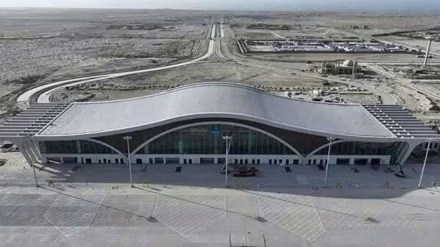Pakistan’s newest and most expensive airport, the $240 million New Gwadar International Airport, remains unused, with no planes or passengers in sight, according to an Associated Press report. Fully funded by China, the airport was completed in October 2024 in the coastal city of Gwadar but has yet to open, leaving many to wonder who it was truly built for.
Situated in Balochistan, one of Pakistan’s most impoverished and unstable regions, the airport highlights the stark contrast between large-scale investments under the China-Pakistan Economic Corridor (CPEC) and the daily struggles of Gwadar’s 90,000 residents.
While China views CPEC as a vital link between its Xinjiang province and the Arabian Sea, locals continue to suffer from a lack of basic necessities — the city isn’t even connected to Pakistan’s national power grid, relying instead on Iranian electricity and solar panels.
“This airport isn’t for Gwadar or Pakistan. It’s for China,” said Azeem Khalid, an expert in Pakistan-China relations, emphasising that the project primarily benefits Chinese interests by providing secure access to Gwadar.
No passengers, no planes, no benefits
CPEC has intensified an ongoing insurgency in Balochistan, where separatist groups, feeling marginalised and exploited, target both Pakistani forces and Chinese workers. The Pakistani government, keen to protect Chinese investments, has ramped up its military presence in Gwadar, turning the city into a fortress filled with checkpoints, barricades, and surveillance. For residents, this has created an atmosphere of fear and control.
“Before, we roamed freely. Now, we’re stopped and questioned constantly,” said 76-year-old Gwadar local Khuda Bakhsh Hashim. He reminisced about a time when Gwadar, once under Omani control, was a vibrant port city. Today, dwindling water supplies, limited job opportunities, and security crackdowns have left many disillusioned.
Locals see little benefit from Chinese investment
Despite promises of transformation under CPEC, the people of Gwadar have seen little improvement in living standards. The government claims that 2,000 local jobs have been created, but many question who qualifies as “local” — the native Baloch community or workers brought in from other regions.
Gwadar, while rich in culture and natural beauty, remains isolated. Its domestic airport only offers flights to Karachi three times a week, with no direct routes to major cities like Islamabad or Quetta. Meanwhile, security concerns have delayed the opening of the new international airport, with fears that nearby mountains could be used as strategic points for militant attacks.
Even the airport’s inauguration was muted — held virtually by Pakistan’s Prime Minister Shehbaz Sharif and China’s Li Qiang, with no media or public allowed. Local leaders, like Abdul Ghafoor Hoth of the Balochistan Awami Party, criticized the exclusion of Baloch residents from employment at the airport. “Not a single person from Gwadar was hired — not even as a watchman,” Hoth lamented.
(With AP inputs)
